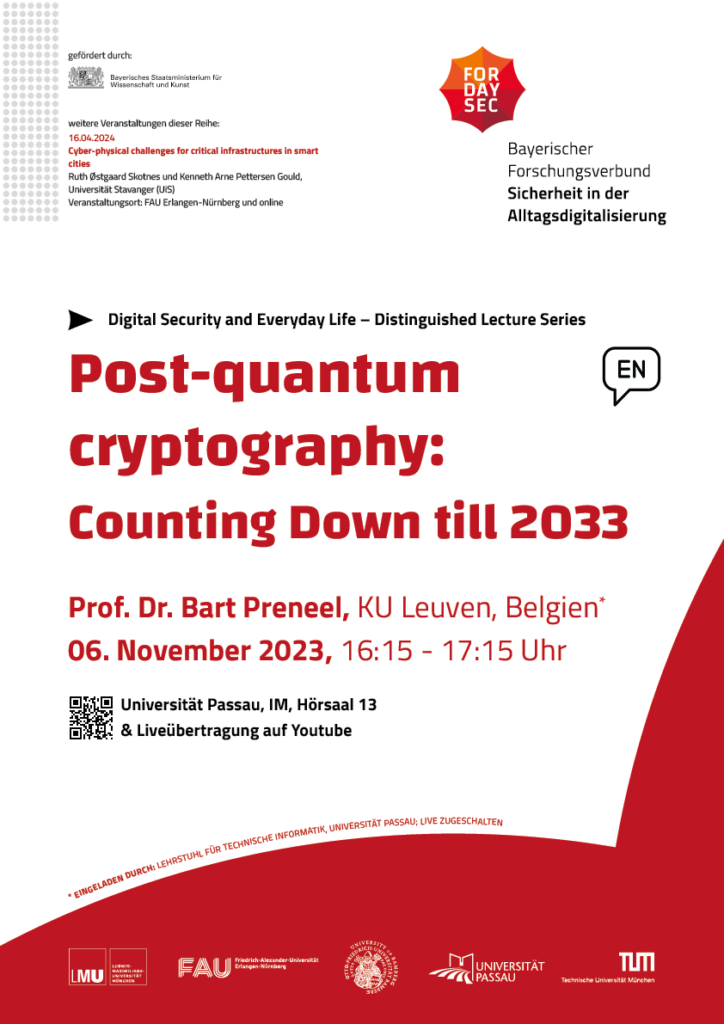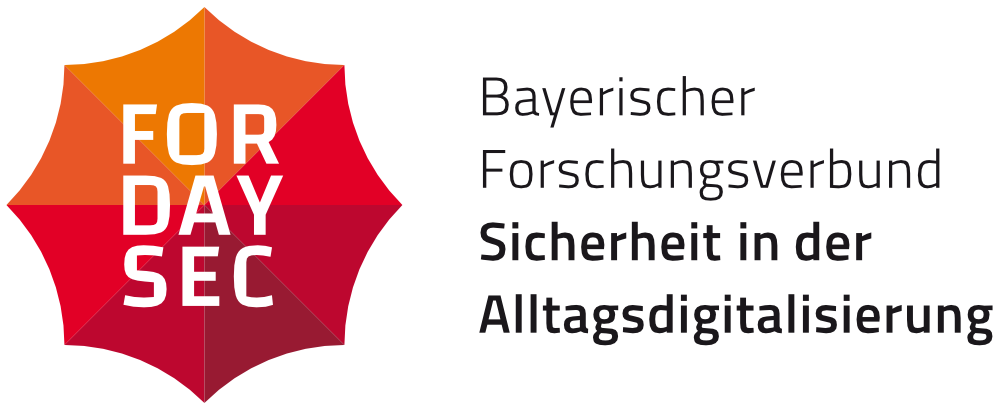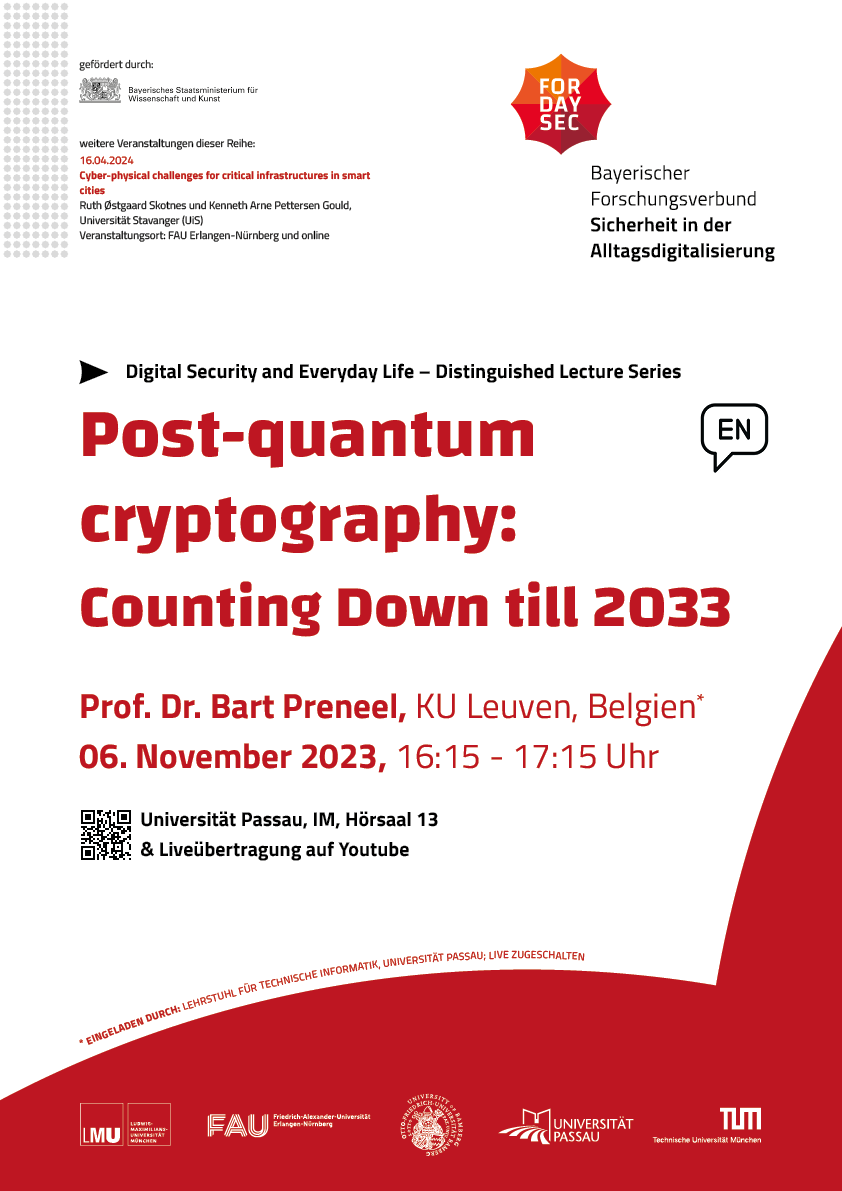Post-quantum cryptography: Counting Down till 2033
06.11.2023
For the opening event of our Distinguished Lecture Series: Security in Everyday Digitization, we invited Prof. Dr. Bart Preneel from the KU Leuven in Belgium.
Description
Post-quantum cryptography: time to act
Experts predict that between 2033 and 2045, we will witness the emergence of powerful quantum computers capable of fundamentally compromising our current public-key systems, which form the bedrock of security for various network and application protocols (such as TLS, IPsec, SSH, EMV, PKI, and code updates).
While this might seem like a distant concern given the daily onslaught of cybersecurity threats, it is essential to recognize the urgency for two critical reasons.
- Firstly, sensitive data, including medical and financial information, may retain its significance for several decades. High profile adversaries can collect and store this data today, anticipating future decryption capabilities enabled by quantum computers. This underscores the need to address quantum threats proactively.
- Secondly, the transition to quantum-resistant infrastructure is an intricate and time-consuming process, especially in complex ecosystems comprising tens of billions of devices. It is estimated that this migration will take at least a decade to complete successfully.
Notably, recent developments have underscored the importance of preparing for the post-quantum era. The National Institute of Standards and Technology (NIST) has released its initial draft of post-quantum standards, and the National Security Agency (NSA) has outlined an ambitious timeline for their implementation, with completion ranging from 2029 to 2033 depending on the application.
In light of these developments, any lingering doubt about the necessity of preparing for quantum threats is disappearing. It is now clear that every organization must commence planning for their migration in the coming year.
This talk provided a technical update on the new post-quantum standards and their practical implementation while addressing the challenges inherent in the migration process.


